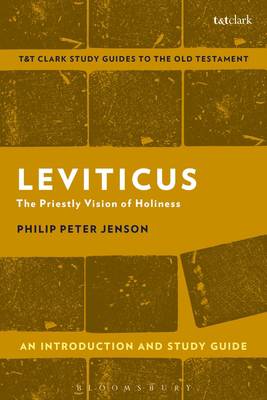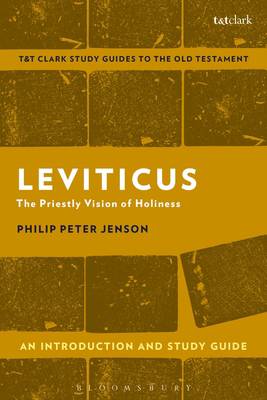
- Afhalen na 1 uur in een winkel met voorraad
- Gratis thuislevering in België vanaf € 30
- Ruim aanbod met 7 miljoen producten
- Afhalen na 1 uur in een winkel met voorraad
- Gratis thuislevering in België vanaf € 30
- Ruim aanbod met 7 miljoen producten
Zoeken
€ 152,95
+ 305 punten
Omschrijving
In this guide, Philip Peter Jenson provides an introduction to Leviticus, examining its structure, character, and content. In particular, he focuses on explaining the basic concepts that inform the rituals and ethics of Leviticus. This is especially the case for the pervasive and complex category of holiness, along with its antithesis, impurity. Overall, Jenson's emphasis is on the overarching coherence of the book and how it reached its present canonical form.
Leviticus is a difficult book for most readers, describing rituals that are no longer practiced and reflecting a culture that is vastly different from that of the modern West. Yet it is the central book of the first section of the Bible of both Jews and Christians, and it is at the heart of the law revealed to Moses on Mount Sinai. It includes the foundational texts on matters such as sacrifice or love for one's neighbour. In this comprehensive introduction, Jenson offers extensive analysis, and concludes each chapter with reflections on the contemporary significance of the texts being discussed.
Leviticus is a difficult book for most readers, describing rituals that are no longer practiced and reflecting a culture that is vastly different from that of the modern West. Yet it is the central book of the first section of the Bible of both Jews and Christians, and it is at the heart of the law revealed to Moses on Mount Sinai. It includes the foundational texts on matters such as sacrifice or love for one's neighbour. In this comprehensive introduction, Jenson offers extensive analysis, and concludes each chapter with reflections on the contemporary significance of the texts being discussed.
Specificaties
Betrokkenen
- Auteur(s):
- Uitgeverij:
Inhoud
- Aantal bladzijden:
- 128
- Taal:
- Engels
- Reeks:
Eigenschappen
- Productcode (EAN):
- 9780567693617
- Verschijningsdatum:
- 12/08/2021
- Uitvoering:
- Hardcover
- Formaat:
- Genaaid
- Afmetingen:
- 156 mm x 234 mm
- Gewicht:
- 358 g

Alleen bij Standaard Boekhandel
+ 305 punten op je klantenkaart van Standaard Boekhandel
Beoordelingen
We publiceren alleen reviews die voldoen aan de voorwaarden voor reviews. Bekijk onze voorwaarden voor reviews.








